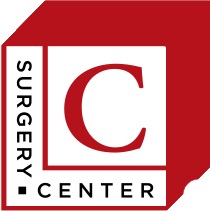Can You Eat Your Way to Healthier Vision?

With our aging population, the CDC estimates the number of people with blindness or vision impairment will double by 2030. As people live longer, it is imperative to prioritize vision health as a part of preventive care.
Common eye conditions that can affect your vision
Many eye diseases develop slowly and without notice. Some of the most common degenerative eye conditions include the following:
- Cataracts — Caused by a clouding of the eye lens, cataracts are the leading cause of vision loss in the U.S.
- Glaucoma — This family of eye diseases damages the optic nerve and can cause permanent vision loss without pain or symptoms.
- Age-related macular degeneration — This condition deteriorates the macula, the light-sensitive area located in the central retina.
- Diabetic retinopathy — The leading cause of blindness in American adults, diabetic retinopathy damages blood vessels in the retina.
Foods that can protect your vision
You can fight eye disease with your fork! One of the few ways to prevent or delay age-related eye diseases is to supply the body with foods rich in vitamins, minerals and antioxidants. Antioxidants are compounds that delay oxidation, a process that causes cells to age and die.
Studies show that foods rich in vitamins A, C and E as well as zinc, lutein, zeaxanthin and omega-3 fatty acids can reduce your risk for cataracts, macular degeneration and even dry eye.
Vitamin A
Vitamin A is vital for good vision, strong immunity and healthy skin. Good sources of vitamin A include tomatoes, leafy greens, sweet potatoes, pumpkin, red bell pepper, mangoes, milk, eggs and beef liver.
Vitamins C and E
Both vitamins C and E are antioxidants that can prevent eye damage from free radicals. If you want to increase your vitamin C intake, eat citrus fruits, red peppers, tomatoes, strawberries, broccoli, Brussels sprouts and cauliflower.
Excellent sources of vitamin E include almonds, sunflower seeds, wheat germ oil, peanut butter, spinach and collard greens.
Lutein and Zeaxanthin
These two plant pigments protect the retina from ultraviolet light damage. They act like sunglasses for the eye and protect the macula in the retina’s center. Getting enough lutein and zeaxanthin can help you prevent age-related macular degeneration, so eat lots of broccoli, peaches, mangoes, berries, spinach and Swiss chard.
Riboflavin (B2)
Healthy riboflavin levels can slow the progression of cataracts. Good sources of riboflavin include meat, nuts, cheese, eggs, mushrooms and fortified breakfast cereals.
Zinc
Zinc is essential for maintaining healthy eye tissue. Zinc-rich foods include lentils, beans, seeds, seafood, dairy products, eggs and meat.
Omega-3 fatty acids
Omega-3 fatty acids strengthen the photoreceptor cells in the retina and reduce inflammation that can lead to dry eye disease. Good sources of omega-3 fatty acids include salmon, albacore tuna, trout and halibut. You can also get omega-3s from plant sources like walnuts, canola oil, flax and chia seeds.
Schedule a comprehensive eye exam
A yearly comprehensive eye exam is just as important as your annual physical. Call your ophthalmologist today to schedule an eye exam with dilation. When you go in for your appointment, ask your eye doctor for more nutritional tips to benefit your vision.
